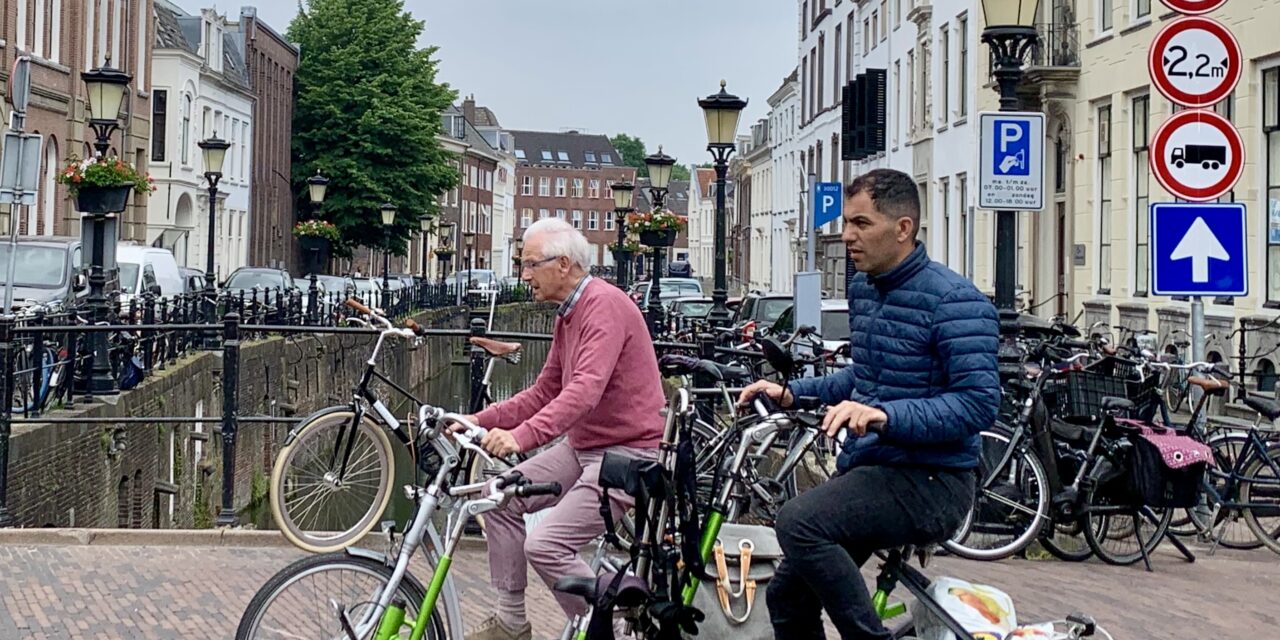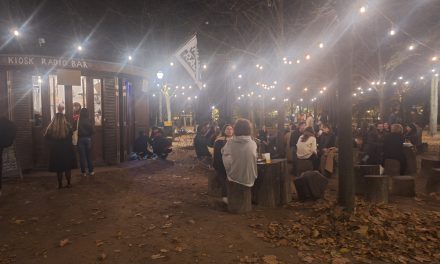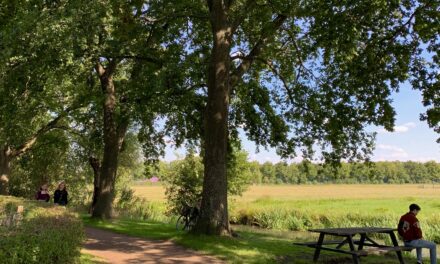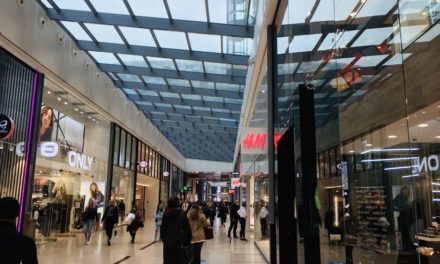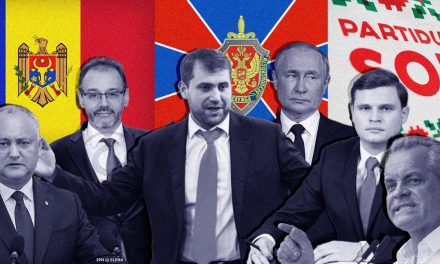For Anna, applying for a job has always been different than for her friends. Instead of requesting a job with only one resume, she always applies with one resume with the surname of her dad, who is from Nigeria, and another one with the surname of her mom, who is from the Netherlands. “It already happened four times that I get invited for the same job with my mom’s surname rather than with my dad’s,” explains Anna Nwankwo.
Once she gets the job, Nwankwo continues having to face discriminatory situations. “During my working day, I go by doors selling people new memberships. It should only be about the product that I am offering but people at doors always ask me ‘oh so, where are you from?’, and when I tell them that I am from the Netherlands, they would always answer ‘no, no, but where are you really from?’. They are racist, but they don’t see it.”
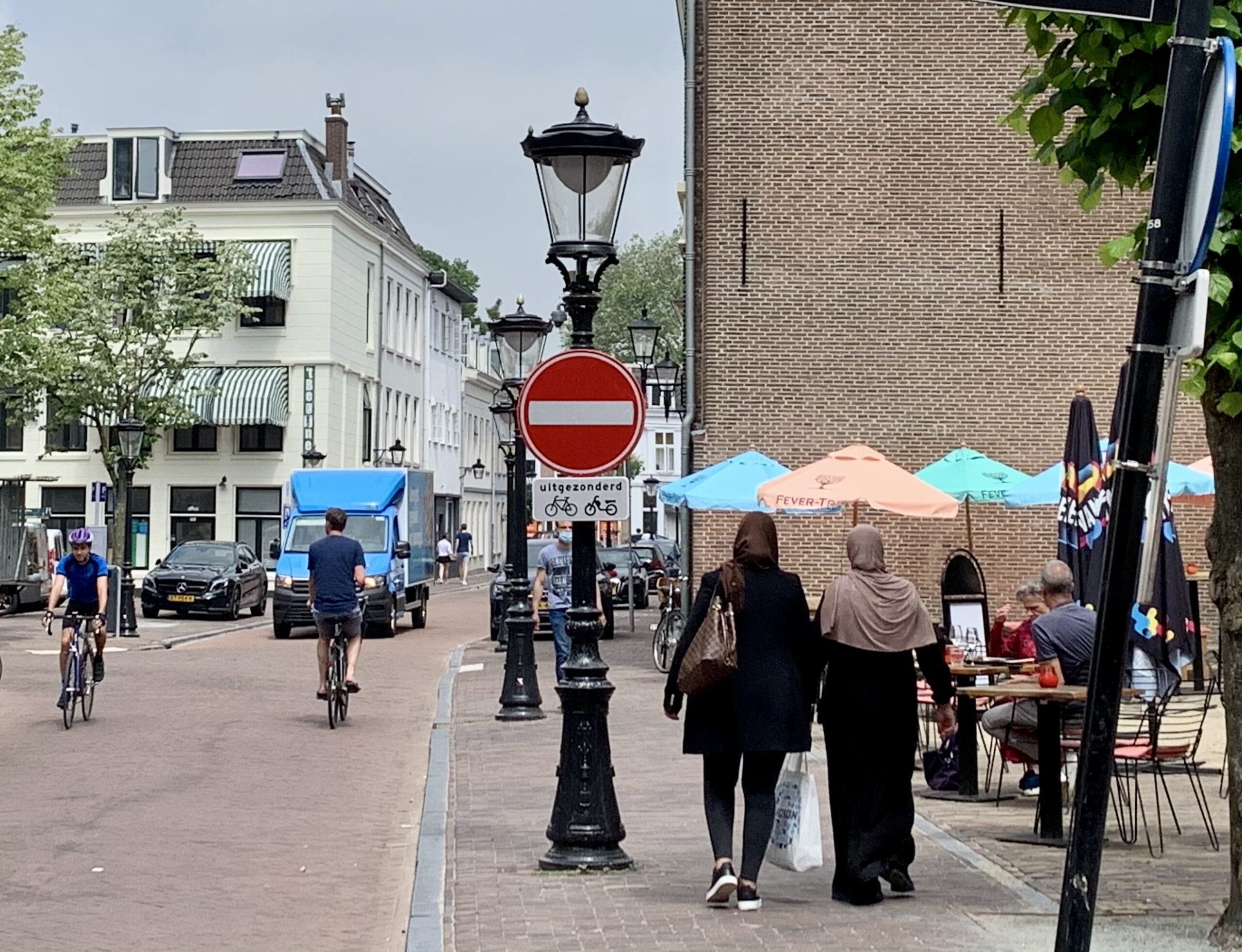
Two women walking in Utrecht. Picture: Alba Santos Cloux
Tolerance, hospitability, and equality are the hallmark of the Dutch country, in which everyone gets the same opportunities regardless of his or her background and colour skin. As Paul Scheffer explained in The multicultural drama, “public life in the Netherlands has been characterized by sustained efforts to reduce social inequality”.
Nevertheless, the Netherlands, as it is known nowadays, is the result of a past of exploitation of people, cultures, and countries, that was executed by the VOC (The Dutch India Company). This company was established in 1602 and was the first to be listed on the stock exchange. During its activity (1602-1799) the VOC had the power to wage war, take and execute prisoners, coin money, negotiate treaties, and establish colonies.
This historical episode has been highly influential for the development of The Netherlands and its colonies; however, the slavery and colonialist actions are dismissed in the school syllabus, and the country seeks to demonstrate that this period has had no impact on the tolerant, open, and equal Dutch society of today. This self-image of the country has fomented the denial of racism, and thus, its perpetuation.
“There are still some fragments of Curaçao where exclusively white and rich people live. It’s where most Dutch people live,” explains Pedro Henrique Cardoso, who is currently studying in The Netherlands and was born and raised in Curaçao, a Caribbean Island that was the subject of Dutch colonialism from 1634 until 1845. “Here in the Netherlands, I have met some people that don’t really want to talk about it, they avoid the subject”.
This denial of racism is also reinforced by the liberal political discourse. The Liberalism fundamental principles -individual responsibility, meritocracy, and universalism- do not coincide with recognizing that white people benefit from racial systems of oppression. Therefore, the liberal political discourse generally frames racism as an individual moral failing and consequently ignores its institutional, and structural effects.
The national self-image as the country of tolerance, hospitability, and equality, and the liberal political discourse make the Dutch society think that they are incapable of racism and intolerance. However, the numbers indicate that this nation maintains racial institutional practices
According to a survey conducted by The EenVandaag in which 39,000 people, including 5,000 with an ethnic minority background were interviewed, 70% of people of colour said they had faced discrimination of some form, compared with 17% of the white Dutch (age, disability, and sexual orientation were also covered by the survey). The 40% of people from an ethnic minority said that they had been subjected to discrimination at school or college due to the colour of their skin, and 29% of this minority said they or their family members were more likely to be stopped by police.
Additionally, a study executed by the Vrije Universiteit Amsterdam, the Dutch Crime and Law Enforcement Study Center (NSCR), Radboud University and Utrecht University proved that ethnic minorities without a criminal record received a less positive response to their application than aspirants of Dutch descent with violent crime on their criminal report.
In the Dutch media people from ethnic minorities are also victims of discrimination. According to the Concessionary Act of 2000 and the Media Act of 2008, public television in the Netherlands would function as a mirror of the pluralist and culturally diverse Dutch society. But research has shown that they are underrepresented, and their depiction is usually highly stereotyped through connexion with criminality. Ethnic minorities television appearance is significantly related to the domain of justice, crime, and police.
Another factor that boosts racism in the Netherlands is the emergence of extreme right-wing parties, as The Party for Freedom, which currently has 17 seats in the House of Representatives. The party’s position regarding immigration and culture is nationalistic; it defends that the dominant culture in The Netherlands should be Judeo-Christian and humanist, which immigrant would have to adapt.
The lack of clear-cut boundaries to this populist has slowly normalized xenophobia, transforming in mainstream what was once considered “extreme” in the Dutch political landscape.
Seemingly the Netherlands is tolerant, open, and equal. As a result of large immigration over the past year, it has become a multicultural country that is obligated to look further than only the Dutch culture. However, racism is still an institutional problem that manifests itself in the everyday lives of non-white people. Consequently, is essential for Dutch society to have critical thinking, and thereby be able to achieve a society free of racism and discrimination.
